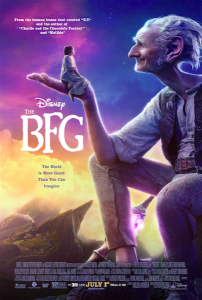
Find more great Horn Book content at these links:
Recommended books: reviews and themed booklists
App and e-book reviews
Movie reviews
Event news and recaps
Events calendar
A deluge of Dahl
Matilda the Musical, based on Roald Dahl’s 1988 novel, is at the Boston Opera House through June 26th.
I had a very Roald Dahl week last week.
 Matilda was up first. In many ways, the book is one of Dahl’s darker ones, at least among those for kids. Freaky stuff happens in, say, Charlie and the Chocolate Factory, but it happens in a setting far removed from real life. Matilda’s world, though it does have some magic, is much closer to everyday kid-life. Threats are scarier when they come from parents and school authorities than when they come from vengeful candy factories.
Matilda was up first. In many ways, the book is one of Dahl’s darker ones, at least among those for kids. Freaky stuff happens in, say, Charlie and the Chocolate Factory, but it happens in a setting far removed from real life. Matilda’s world, though it does have some magic, is much closer to everyday kid-life. Threats are scarier when they come from parents and school authorities than when they come from vengeful candy factories.So I was curious about how much of the darkness the musical (directed by Matthew Warchus) would preserve. The answer: plenty. As in the book, Matilda (Sarah McKinley Austin, in the performance I saw on June 15th) attends a school helmed by Miss Trunchbull (Dan Chameroy), who believes that "children are maggots" and locks them up in the sharp-object-lined “Chokey” for small infractions. Her home life is only slightly better: her parents (Darcy Stewart and Brandon McGibbon) make it clear that she’s unwanted and that they consider her deep love of reading weird and distasteful. In one dramatic scene, her dad even...destroys a library book.
That’s another thing that the musical preserves from the novel: the theme that books and stories are important and powerful. For Matilda, they’re a place to escape her world, and in contrast to the evil in it. In the end, this is an uplifting musical, and that’s one of the reasons. Another is that there are loving adults around, particularly Miss Honey (Paula Brancati); Matilda just has to find them. And finally, Matilda and her classmates manage to take matters into their own hands. Because when the rules are wrong, as one of the songs puts it, “sometimes you have to be a little bit naughty.”
 My memory of The BFG, the book, wasn’t very clear going into the movie screening, so I wasn’t sure what to expect. But I know what a Roald Dahl book sounds like, and the dialogue in this Steven Spielberg–directed film sounds like Dahl. Not pure-silliness Dahl, though. Mark Rylance as the titular Big Friendly Giant and Ruby Barnhill as Sophie infuse the dialogue with emotion, even as Rylance’s giant-speak plays fast and loose with the English language. And as many gags as it has, this is an emotional story, too: Sophie, who lives in an orphanage until the BFG snatches her, isn’t very happy, and the BFG, bullied by even bigger (and less friendly) giants, isn’t happy either. The friendship that develops between these two lonely characters is an important one, especially when they start protecting each other. There are threats here, too — and I understand the book is a bit darker — but at least the threat of being eaten by a giant doesn’t come from a particularly close-to-home place for most people.
My memory of The BFG, the book, wasn’t very clear going into the movie screening, so I wasn’t sure what to expect. But I know what a Roald Dahl book sounds like, and the dialogue in this Steven Spielberg–directed film sounds like Dahl. Not pure-silliness Dahl, though. Mark Rylance as the titular Big Friendly Giant and Ruby Barnhill as Sophie infuse the dialogue with emotion, even as Rylance’s giant-speak plays fast and loose with the English language. And as many gags as it has, this is an emotional story, too: Sophie, who lives in an orphanage until the BFG snatches her, isn’t very happy, and the BFG, bullied by even bigger (and less friendly) giants, isn’t happy either. The friendship that develops between these two lonely characters is an important one, especially when they start protecting each other. There are threats here, too — and I understand the book is a bit darker — but at least the threat of being eaten by a giant doesn’t come from a particularly close-to-home place for most people.The movie is visually fascinating, what with all the variance in scale. And just when you get used to the BFG’s size and his general galumphing — in Giant Country, it all kind of fits — he enters a setting that’s as different as it gets from his cave home: Buckingham Palace. (Sophie has her reasons.) A warm and funny palace scene is classy enough that even a dramatically built-up royal flatulence joke can’t drag the movie too deep into the lowbrow.
As long as you and the young viewers in your life don’t mind some brief scares, I would recommend both the Matilda musical and the BFG movie. (But if you see them one after the other like I did, you may find yourself using words like scrumdiddlyumptious).

says
Add Comment :-
RELATED
RECOMMENDED
ALREADY A SUBSCRIBER? LOG IN
We are currently offering this content for free. Sign up now to activate your personal profile, where you can save articles for future viewing.






